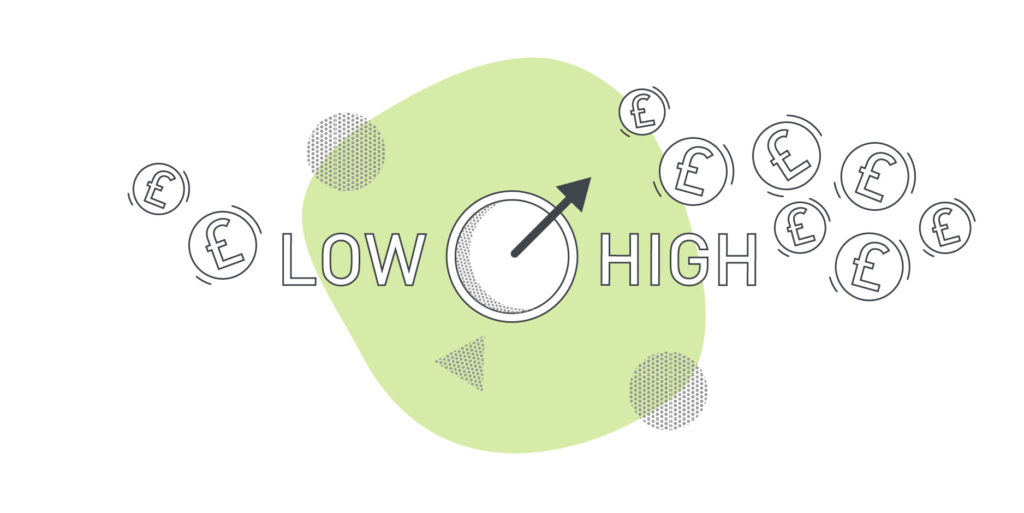
For most of us, arranging a mortgage is an important step towards buying a home. One term you may come across is a ‘mortgage in principle’. But what does it really mean? Explore our comprehensive guide to learn more about how to get a mortgage in principle, how much it costs and how it can affect your credit score.
What is a mortgage in principle?
A mortgage in principle, also referred to as a ‘mortgage promise,’ ‘agreement in principle,’ or ‘decision in principle,’ is a written statement provided by a mortgage lender or broker. It outlines how much money you could potentially borrow for your home purchase.
It’s important to remember that this statement isn’t a formal offer, isn’t guaranteed, and will only last for a certain period.
How long does a mortgage in principle last?
A mortgage in principle is typically valid for 30 to 90 days. After it expires, you can either renew it or apply for a new one.
1. Renewal: You may be able to renew the agreement if needed.
2. New application: If renewal isn’t possible, you can apply for a new mortgage in principle. Keep in mind that the terms may differ from the previous one.

What’s the difference between a mortgage in principle and an offer?
A mortgage in principle provides an estimate of how much you could borrow for a home purchase, but it doesn’t guarantee that you’ll get the mortgage.
A firm mortgage offer is an official document from a lender that confirms they will provide you with a mortgage for the property you intend to buy. It’s a more solid commitment.

How do I get a mortgage in principle?
Once you’ve found a suitable lender or broker, you can arrange to get a mortgage in principle. They’ll ask you for important information about you and your circumstances. Here’s what you’ll need:
• Personal details, including your full name, home address, date of birth and nationality
• Address details covering the last three years
• Contact details like your email address and mobile number
• Mortgage details, including the approximate price of the property you want to buy, your deposit and mortgage term
• Financial details, including your income, monthly outgoings, expenditures and credit agreements
You can show your mortgage in principle to potential sellers so that they know you can secure a mortgage and afford to buy their home.
Getting a mortgage in principle is just one step of the homebuying process. Explore our comprehensive homebuying guide to find out the rest.

How much does a mortgage in principle cost?
You can usually get a mortgage in principle for free. Select a lender and apply online, by phone or in person at a local branch.
If you go through a mortgage broker, you may have to pay for their services, so it’s wise to check beforehand.
Can you get more than one mortgage in principle?
You can get multiple mortgages in principle from different lenders. If the initial figure you receive is lower than you’d like or if you find better rates elsewhere, you can approach other banks or building societies to compare terms.
Do I need a mortgage in principle?
When you’re house-hunting, you’re up against other potential buyers. A mortgage in principle shows sellers, developers or estate agents that you’re a serious buyer who can afford the homes you’re viewing.
Knowing how much you can realistically borrow helps you focus and gives you the confidence to look at properties. This is particularly important if you’re a first-time buyer or if your credit record isn’t good.

Can getting a mortgage in principle affect my credit score?
Applying for a mortgage in principle doesn’t usually impact your credit score.
Before a lender decides to approve your mortgage, they’ll run a ‘soft’ credit check – a background check that doesn’t leave a visible mark on your credit file. Some lenders may conduct ‘hard’ credit checks. Numerous ‘hard’ checks over a short period can lower your credit score and stay on your report for four years.
Before you start, it may be a good idea to speak to your lender or a mortgage adviser. Ask them if they conduct ‘soft’ or ‘hard' checks and any other questions you have to be sure you understand what you’re signing up for.
What do I need to keep in mind about a mortgage in principle?
The most important thing to remember is that a mortgage in principle isn’t set in stone – it’s subject to more detailed affordability checks and a property valuation when you complete the mortgage application process.
While it gives you an idea of your budget, a mortgage in principle doesn’t guarantee approval for the mortgage amount specified initially. If your circumstances change or additional information comes to light, the lender may adjust their original decision.
What should I do next?
When you’re ready to start searching for a new home, obtain a mortgage in principle and begin exploring properties.
If you’re a first-time buyer, it’s a good idea to get professional help. Explore our article about speaking to a mortgage adviser.
Discover our wide range of brand-new, energy-efficient homes across the UK, including 2 bedroom homes to 5 bedroom homes.
We also have unique offers for first-time buyers, including Parent Power, Deposit Boost and Kickstart.
Call our Sales Advisers today to learn more.


